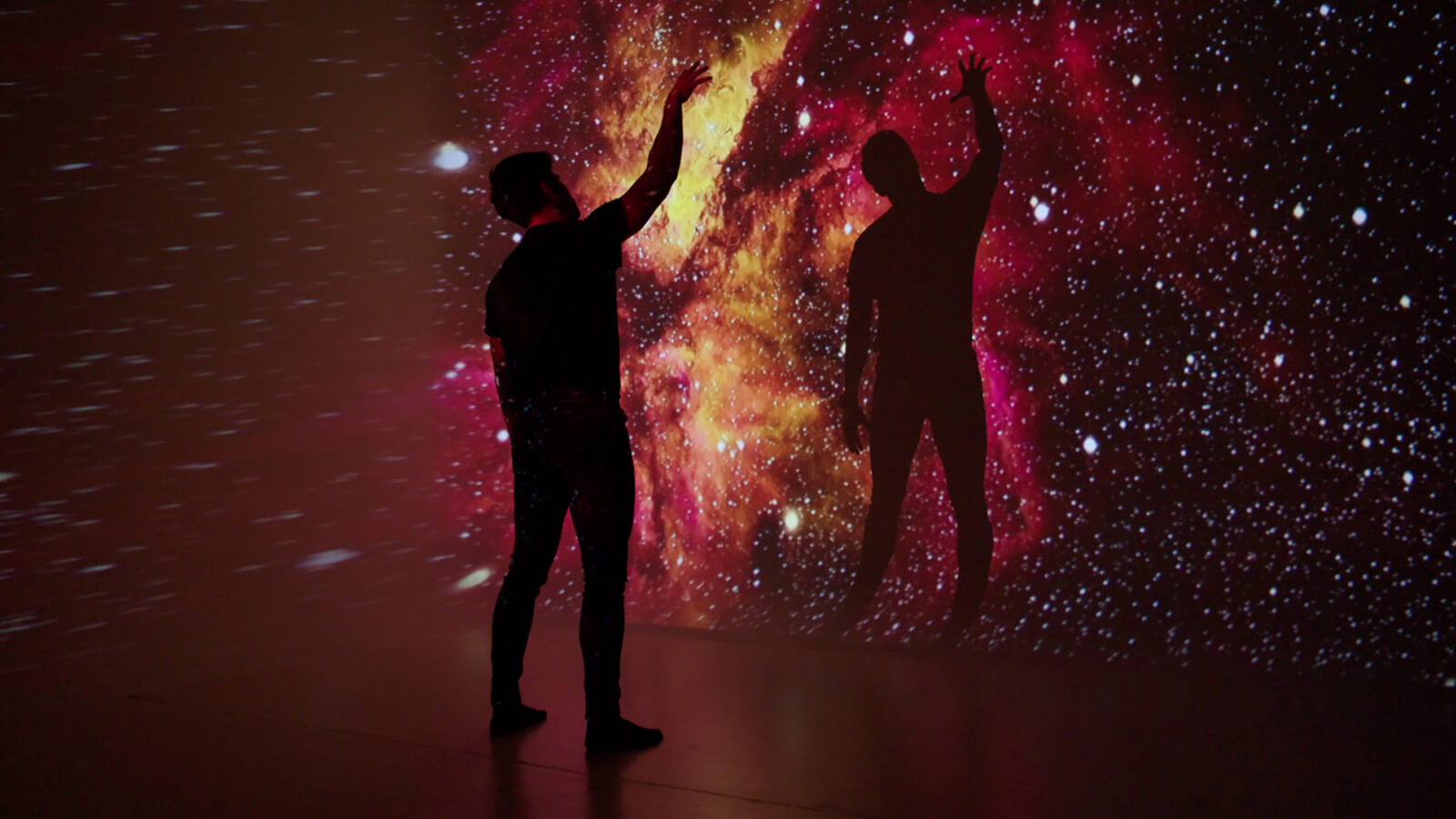“All spiritual practice is a rehearsal—and at its best, an enactment—of death. As the mystics put it, ‘If you die before you die, then when you die, you won’t die.’”Ken WilberW
hy is Integral Life Practice so important? What is truly unique about the ILP approach that other approaches are missing? How do we bring more depth, elegance, and embodiment to whatever practices we might already be engaging in?
Watch as Ryan and Corey offer some practical advice to help you deepen and enrich your practice, helping you shift your attention from the integral map to an actual lived experience of the integral territory.
Ryan is also one of our regular practice leaders on our Integral Life Practice platform, which features live daily practice sessions with a diverse community of integralists who are committed to each other’s ongoing growth and awakening. Supporting members of Integral Life have full access to all of these daily sessions, as well as to our entire library of solo practices. This is a perfect way for you to kickstart your ILP if you do not already have one, or to round out your practice with other Waking Up, Growing Up, Cleaning Up, and Showing Up practices.
Click here to see the full practice library.
New to Integral Life Practice? Click here for a basic overview!
Written by Corey deVos
Music by Justin Miles and Stuart Davis
Transcript Excerpt
Corey: Why is practice important, particularly here in integral land? I think if we look at the last 20 years of the emergence of the integral project all over the world has been largely conceptual, cognitive, theoretical, et cetera. In a way it’s a masculine expression of integral, right? We have a safe distance from all phenomenon we’re witnessing, and we’re kind of coming up with our algorithms and equations to put everything in its right place and achieve this beautiful vision that we can hold in our heads.
But of course the entire point of integral itself is not just to have this third-person kind of comprehensive vision of reality, but to have a more comprehensive experience of yourself, your life, your relationships, and your actual experience of the world. This is the other beat of integral, it’s calling not just all of the world out there and putting it all into its proper kind of place, but it’s actually inviting us to bring our perspective online, and to truly inhabit all of these different dimensions of our reality as fully as we possibly can. And that takes work.
How do I actually start putting this into motion? That’s where practice really comes online. And if all the cognitive theoretical stuff is the masculine side of integral, I really see practice as sort of this rich kind of feminine side, where we’re actually focusing not just on how to look at our experiences, but let’s have the direct experience right now, and let’s have it together. You know, let’s actually create a sort of a community and a container here, where we can kind of step into this with full volition and have an experience together. This to me feels like the fulfillment or the maturation of integral itself.
Ryan: Right. So yeah, the question, “why is practice important?” And, you know, we’ve talked a lot about embodied awareness practice or embodiment, and especially through the realization process from Judith Blackstone, and she always makes the point that a lot of times people wake up only through part of their being. So in a certain way, even though the waking up qualities seem boundless, formless, and timeless, our lived experience and awakening does have an integration with form, and so we wake up in a partial way. So we might wake up from the neck up — we experience an open, vast awareness from our neck up, but we can’t really experience that permeating our being, in which case that’s why a practice is needed. I think it’s something similar here, across multiple categories: not just waking up, but all the “four ups” [waking up, growing up, cleaning up, showing up]. If we’re only living in that world of mind, from that perspective-taking position, then it’s really not integrated into our being. Which means it’s not our lived experience, and it means that we’re limited in our ability to integrate that in life and respond in life.
And I see this happen all the time. This is really common in the integral community, it might be people who are naturally more, say, cerebrally-oriented, which is not a bad thing. That’s part of our being. So I always want to make sure that it’s clear, [it’s not] like, “Oh, don’t be in your head.” No, we don’t need to turn parts of ourselves into enemies and have them battling. The mind is powerful, and it’s part of our being, it’s how we know the world. So that’s not a problem – it’s just if we’re stuck there and we’re kind of habituated to be there.
Corey: Beautifully said. I loved when you were talking about how, even when we are engaged in practice, oftentimes it is sort of “neck up”, right? And this show, and really the entire Integral Life Practice gestalt as a whole, is inviting more embodiment there. It’s inviting more inhabitation of our practice.
This is why I try to emphasize the “wounded healer” archetype more than this idea of like a fully-formed integralist, right? “If I do this and I do this and I do this and I do this, I will arrive at a destination, and when I arrive at the destination, I’ll be able to look at myself and I’ll feel complete and whole and happy.” And it’s like, well, I understand symbolically why integral represents that to you — again, it’s sort of this almost like archetypal kind of meaning that it conveys as a symbol. And yet the actual experience of integral is, there really is no destination here. This is an art, this is poetry-in-motion Every day we are integrating, and hopefully today I’m integrating a little bit more fully than I was yesterday. It’s just incremental moment-to-moment, day-by-day path. And there’s never a point where you achieve “full integration”. Ken often says it’s like talking about people who want to be “fully educated.” What does that mean? It’s meaningless to talk about being “fully educated”, because there’s always something you don’t know. It’s the same thing with integral. Integral is more of a verb to me than it is a noun.
Previous Episodes of Inhabit
Inhabit: Your Awakening
 Corey deVos
Corey deVos
 March 7, 2024
March 7, 2024
Inhabit: Your Bardo
 Corey deVos
Corey deVos
 September 15, 2022
September 15, 2022
Inhabit: Your Speech
 Corey deVos
Corey deVos
 April 26, 2022
April 26, 2022
Inhabit: Your Heart
 Corey deVos
Corey deVos
 March 22, 2022
March 22, 2022
Inhabit: Your Humility
 Corey deVos
Corey deVos
 November 9, 2021
November 9, 2021
Related Media
Inhabit: Your Inner Theatre
Ryan Oelke and Corey deVos
Corey and Ryan take you on a cinematic journey through the stages of human development, a tour of your own inner theatre, using a series of 21 carefully-curated film clips to illustrate some of the most important qualities of each stage.
The Art of Practice: Introducing ILP
Lisa Frost and Corey deVos
Join Lisa Frost and Corey deVos in a new monthly series that will explore how to bring more depth and artistry to our Integral Life Practice — the very best and most effective practices to help you Wake Up, Grow Up, Clean Up, and Show Up in your life, your relationships, and your work in the world.
Vision Logix Woodworks
Corey deVos
In recent years, much of my creativity has been focused around my woodworking. It has become an all-consuming passion for me, and over the last year or so I have created a number of custom-designed carvings that try to bring integral ideas and iconography out of the abstract and into solid material form.
Free Email Course: Build Your Integral Life
We created 24 free lessons that can help you learn the Integrative Mindset needed to thrive in the rapidly-evolving world of the 21st century. Enter your email to start the course:
EMERGE — HOW TO THRIVE IN A WORLD GONE MAD
These chaotic times bring us in touch with what matters most, whispers of death and rebirth, as our global life conditions passionately usher us toward all of what could be, of what wants to emerge in your life.
Emerge is a new training program by Ryan Oelke, offering a thoughtful 3-phase process that will empower you to fully inhabit your experience, more deeply relate in real-time to life, and to formulate agile paths of response and action. With this embodied integral training, you will both be more passionately inspired from the core of your being and you will more successfully see the change, experiences, and results you and we long for and need in this moment and in the future.
Learn how Emerge can help you find traction for your transformationAbout Ryan Oelke
Ryan Oelke is a co-founder and teacher at Buddhist Geeks and a Senior Teacher of The Realization Process. He has an MSEd in counseling psychology and is contemplative teacher of awakening, healing, and embodiment. He has 20 years experience in meditation, particularly in the Tibetan Buddhist and Dzogchen lineages. Ryan teaches meditation and a way of living dedicated to revealing natural presence and awakening in each moment of our lives, regardless of how it appears to us.
About Corey deVos
Corey W. deVos is editor and producer of Integral Life. He has worked for Integral Institute/Integal Life since Spring of 2003, and has been a student of integral theory and practice since 1996. Corey is also a professional woodworker, and many of his artworks can be found in his VisionLogix art gallery.










